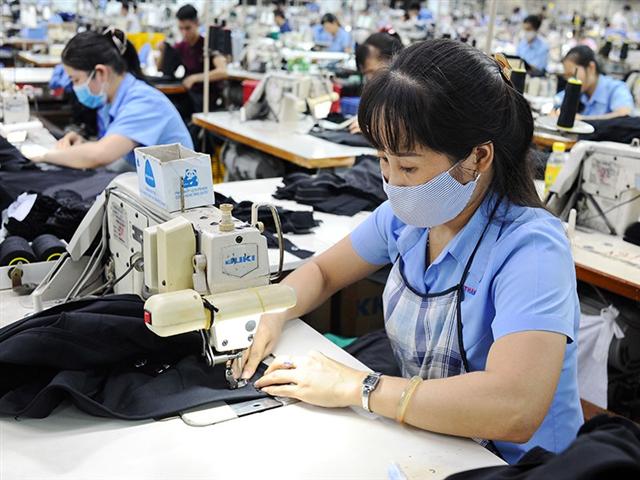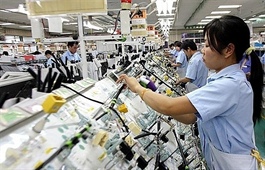Covid-19 hurts income of 90% of Vietnamese laborers
Covid-19 hurts income of 90% of Vietnamese laborers
Half of the number of laborers have their income reduced by at least 20%, with the majority being low-skilled workers.
Nearly 90% of Vietnamese laborers taking part in a survey conducted by market research company Ipsos said they have received less income than before due to the Covid-19 outbreak and the subsequent social distancing orders, VnExpress reported.

90% Vietnamese earn less income on Covid-19.
|
Notably, half of the respondents have their income reduced by at least 20%, with the majority being low-skilled workers.
The result is part of an online survey conducted simultaneously in six Southeast Asian countries. In case of Vietnam, 500 people were randomly selected and divided into three groups of monthly income: below VND7.5 million (US$323.49), from VND7.5 million (US$323.49) to VND23.5 million (US$1,013), and over VND23.5 million (US$1,013).
CEO of Ipsos Vietnam Ngan Ly told VnExpress that, normally, with a sample size of 100, the acceptable margin of error would be 10%. For this survey, the size is 500 and the margin of error is around 4%, so the result could be considered valid and representative of Vietnamese people.
A survey from the General Statistics Office released in early July revealed that in the first six months, this year nearly 31 million workers aged 15 and over in Vietnam have been hit by the Covid-19 pandemic. Notably, 17.6 million people, or 57.3% of the affected ones, have received less income than before the Covid-19 outbreak.
According to the GSO, the monthly income of workers in the second quarter averaged VND5.2 million (US$225), down VND525,000 (US$23) or 10% against the previous quarter. This is also the first decline in monthly income over the last five years.
Market research firm Ipsos said a lower income led to changes in daily behavior of Vietnamese people. Specifically, 17% of households with low income are forced to tighten spending, particularly on tourism, food, clothes and electronic products. In contrasts, home and personal care products such as body lotion, cleanser or toothpaste have witnessed increases in sale.
Moreover, 30% said they prefer shopping online or meal delivery services to going to supermarkets. Such a change in behavior led to a reduction of 46% in cash payments compared to the pre-Covid-19 period.
Meanwhile, 67% of people taking part in the survey expressed confidence that the economic outlook and their income in the second half of the year would be better, while 12% predicted a worsening scenario.
Ipsos said customers are being more selective in buying products, which not only meet their basic needs, but also provide better shopping experience.
Retailers should provide better customer services and be more cautious in pricing policies in this regard, Ngan Ly said.






















